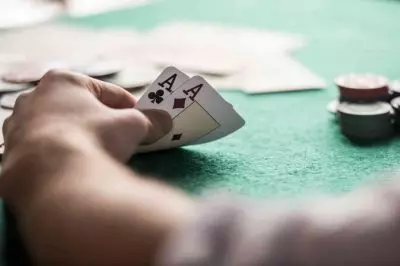 Several New Jersey lawmakers have submitted a bill that seeks to introduce compulsive gambling education in local high schools. Assemblywoman Mila Jasey, Assemblyman Daniel Benson, and Assemblyman Ralph R. Caputo are the primary sponsors of Bill A5308, while Assembly members Marilyn Piperno, Kim Eulner, and William B. Sampson IV co-sponsored it. If approved, it would require school districts throughout the Garden State to educate students in grades 9 through 12 about the harms associated with problem gambling. This guidance on compulsive gambling was proposed as part of the New Jersey Student Learning Standards in Comprehensive Health and Physical Education.
Several New Jersey lawmakers have submitted a bill that seeks to introduce compulsive gambling education in local high schools. Assemblywoman Mila Jasey, Assemblyman Daniel Benson, and Assemblyman Ralph R. Caputo are the primary sponsors of Bill A5308, while Assembly members Marilyn Piperno, Kim Eulner, and William B. Sampson IV co-sponsored it. If approved, it would require school districts throughout the Garden State to educate students in grades 9 through 12 about the harms associated with problem gambling. This guidance on compulsive gambling was proposed as part of the New Jersey Student Learning Standards in Comprehensive Health and Physical Education.
The proposed instructions shall tackle a variety of topics, including the risks of gambling addiction and the differences between predictability and probability. Local school districts would be provided with various resources and educational materials on compulsive gambling. The New Jersey Commissioner of Education would also devise a special training module for teachers that would enable them to better fulfill the proposed instructions. The module in question would cover the reasons for developing a gambling addiction, its symptoms, and the means of treatment.
If the bill passes into law, the measures would come into effect right away and would be immediately implemented during the first full high school year after the legislation’s enactment. The proposal of the measures coincides with the launch of a new program launched by the Council on Compulsive Gambling of New Jersey. Aptly called Cognitive Perspective Restructuring, the program tackles various hazardous behaviors, including but not limited to problem gambling, bullying, and excessive alcohol and drug use.
Almost 7% of New Jersey’s Residents Are Compulsive Gamblers
 According to the executive director of the non-profit organization, Felicia Grondin, the CPR program aims to educate youngsters about the impact of their choices on their adult lives. Grondin commended the legislators on the bill’s introduction and emphasized the importance of gambling addiction education, especially considering the increase in underage gambling in the state.
According to the executive director of the non-profit organization, Felicia Grondin, the CPR program aims to educate youngsters about the impact of their choices on their adult lives. Grondin commended the legislators on the bill’s introduction and emphasized the importance of gambling addiction education, especially considering the increase in underage gambling in the state.
She referred to a study conducted by the State University of New Jersey (Rutgers) that revealed the problem gambling rates across the country average 2%. This percentage is significantly higher at almost 7% in the Garden State, which Grondin attributes to the broad availability of gambling in New Jersey. The copious opportunities for betting combined with excessive marketing create the impression in youngsters that gambling is a great source of recreation and losing is impossible, Grondin explains.
A 2021 survey sponsored by the New Jersey Department of Human Services (NJDHS) indicated that as many as 54% of minors in the state participate in one form of gambling or another. Some of these youngsters gamble for real money, while others do it to obtain various items in the video games they play, Grondin said. According to her, compulsive gambling is a ‘hidden’ addiction, unlike alcohol or substance abuse where behavioral changes and impairments are far more noticeable.
By contrast, problem gambling is often identified only after the person has already slipped out of control and incurred crippling debts. This makes educating the youth about the dangers of gambling addiction all the more important, Grondin concluded and applauded the state’s legislature for making a positive step in this direction.